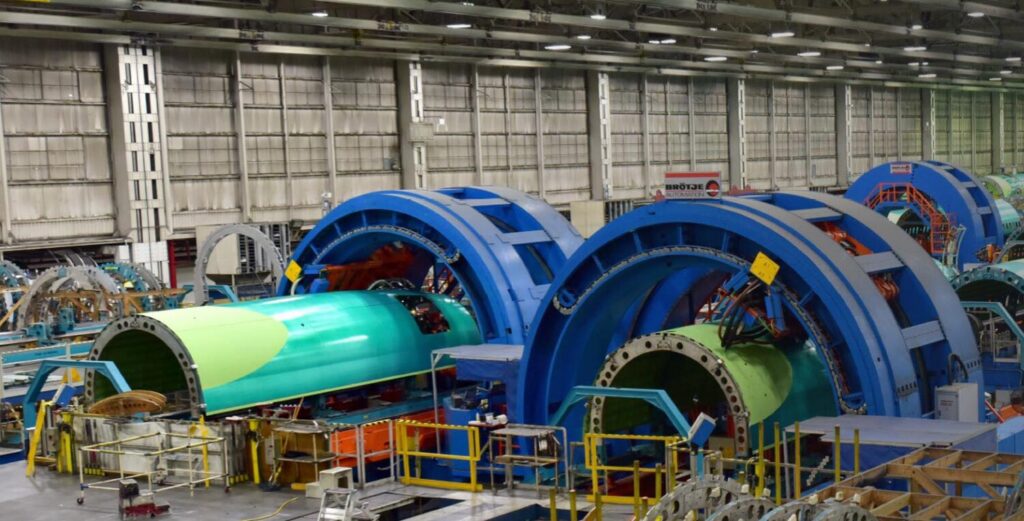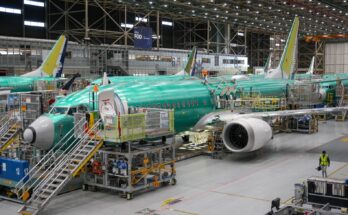
Boeing announced a definitive agreement to acquire Spirit AeroSystems for $8.3 billion in a move that reverses a long-standing trend of outsourcing key manufacturing operations. This all-stock deal comes after months of negotiations and signals Boeing’s intent to tighten its grip on quality and production efficiency.
The backstory behind this deal is one of recent turbulence for Boeing. The company has faced public scrutiny following two fatal crashes of its 737 MAX jets in 2018 and 2019 due to faulty Maneuvering Characteristics Augmentation System (MCAS) software. Regulators grounded the planes for nearly two years, causing significant financial losses and reputational damage to Boeing.
More recently a door panel blowout incident on a 737 MAX aircraft in January 2024 forced regulators to step in and reevaluate Boeing’s production system. The door panel blowout, traced back to missing bolts and potential quality control lapses, highlighted the vulnerabilities of Boeing’s reliance on a complex network of suppliers. Bringing a critical supplier like Spirit in-house is seen as a way for Boeing to exert more control over the quality of parts and ensure stricter adherence to safety protocols. This could streamline communication, expedite problem identification, and ultimately prevent similar incidents from happening again.
“We believe this deal is in the best interest of the flying public, our airline customers, the employees of Spirit and Boeing, our shareholders and the country more broadly,” said Boeing President and CEO Dave Calhoun. “By reintegrating Spirit, we can fully align our commercial production systems, including our Safety and Quality Management Systems, and our workforce to the same priorities, incentives and outcomes – centered on safety and quality.”
The merger is an all-stock transaction at an equity value of approximately $4.7 billion, or $37.25 per share. The total transaction value is approximately $8.3 billion, including Spirit’s last reported net debt.
Spirit AeroSystems, which was spun off from Boeing in 2005, manufactures key aircraft parts including winds and fuselages for the troubled 737 MAX. These parts are then shipped to Boeing’s factory for final assembly.
Airbus Also Strikes a Deal
The Boeing-Spirit agreement isn’t a complete takeover. Airbus, Boeing’s European arch-rival, has also struck a deal with Spirit. This separate agreement involves Airbus acquiring specific commercial work packages currently handled by Spirit. These packages encompass critical operations for various Airbus aircraft, including A350 fuselage sections in Kinston, North Carolina (U.S.) and St. Nazaire, France. Additionally, it includes production of A220 wings and mid-fuselage sections in Belfast, Northern Ireland (U.K.) and Casablanca, Morocco, along with A220 pylons manufactured in Wichita, Kansas (U.S.). This carve-out ensures continuity for these Airbus projects while Boeing takes control of the remaining Spirit operations relevant to its own commercial airplanes. Additionally, Spirit plans to sell off specific operations in Belfast, Prestwick, and Subang.
In 2023, Spirit Aerosystems reported sales of $6.0 billion. Airbus’ business with Spirit accounted for $1.1 billion, 19% of its revenue while $3.9 billion, or 64% came from business with Boeing. Beyond its core business of supplying Boeing and Airbus, Spirit also provides MRO services and produces parts for helicopters, missiles, and space systems.
The acquisition is expected to close by mid-2025, pending regulatory approvals, Spirit shareholder consent, and the successful divestiture of Airbus-related operations. This move follows Boeing’s earlier reacquisition of GKN Aerospace St. Louis, a move intended to secure production of critical parts for the U.S. government. This agreement brings the St. Louis facility, along with its capabilities and workforce dedicated to the F/A-18 and F-15 programs, back under Boeing’s control. Both acquisitions demonstrate Boeing’s efforts to strengthen its supply chain and regain control over its production processes.
A military history enthusiast, Richard began his career at Forecast International as editor of the World Weapons Weekly newsletter. As the Internet became central to defense research, he helped design the company’s Forecast Intelligence Center and now coordinates the FI Market Recap newsletters for clients. He also manages two blogs: Defense & Security Monitor, which covers defense systems and international security issues, and Flight Plan, focused on commercial aviation and space systems.
For more than 30 years, Richard has authored Defense & Aerospace Companies, Volume I (North America) and Volume II (International), providing detailed data on major aerospace and defense contractors. He also edits the International Contractors service, a database tracking all companies involved in programs covered by the FI library. Richard currently serves as Manager of the Information Services Group (ISG), which develops outbound content for both Forecast International and Military Periscope.



